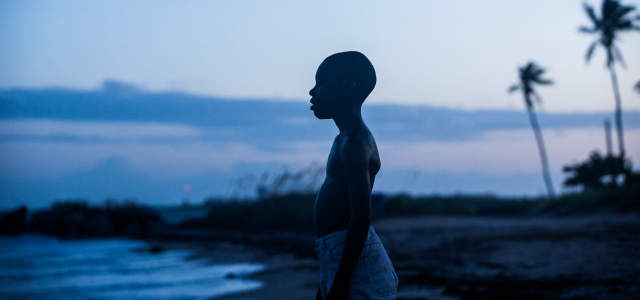Moonlight
What cinema exists for; bold, measured and quietly beautiful storytelling that you won’t forget.
Plot summary
Moonlight chronicles three pivotal moments in the life of a young African-American man struggling with his sexual identity in a poor suburb of Miami.

We first meet Chiron (A haunting Alex R. Hibbert) as a near enough mute nine year-old boy, who has been aptly nicknamed ‘Little’ and is hiding from a gang of stone-throwing bullies. But Chiron is hiding from more than just bullies, he’s hiding from something everyone can see but him. “You’re gonna tell him why the other boys kick his ass all the time?” screams his crack-addicted mother Paula (Naomie Harris, earning her an Oscar nomination and then some) as she scolds Juan (Mahershala Ali, a solid and soulful presence) a local drug dealer who has taken guardianship of Chiron. Juan encourages the painfully withdrawn boy to open up “At some point, you gotta decide for yourself who you’re going to be. Can’t let nobody make that decision for you”.
The film then follows Chiron (now played with searing rawness by Ashton Sanders) through adolescence, where simmering homophobia, violence, and an unforgettable experience on a moonlit beach bring him to adulthood. Adult Chiron (Trevante Rhodes, powerfully nuanced) is now going by the alias ‘Black’ and dealing drugs, also he’s looking a lot like 50 Cent (it’s uncanny). Cloaked under a protective layer of hyper black masculinity (do-rags, muscles, and grillz) Chiron receives a phone call from an old friend that reawakens that thing he’s worked so hard to hide. It’s actually a testament to the three actors playing Chiron, that you would have thought the writer and director Barry Jenkins had done a Boyhood and filmed the one actor for 11 years. Across the board, Moonlight features some of the finest screen performances you’ll see this year. Trevante Rhodes and the brilliant Andre Holland sizzle in their scenes together, in what could be best described as watching acting athletics.
Director and writer Barry Jenkins brings an ambient, poetic and dreamlike quality to Moonlight that seamlessly melds and contrasts the heartbreaking strands that make it such a quietly powerful film. James Laxton’s cinematography expertly shapes Jenkins vision to stunning quality, while Nicholas Britell’s classical soundtrack gives the film immediacy and sophistication. The film at times almost feels less like a low-budget US indie and more European art house. Considering the very current topics at hand (race, sex, drugs, etc) Moonlight’s script is not exploitative about what it is about. In a time of #OscarsSoWhite and discussions of diversity and inclusivity in film, Moonlight is one of those films we might want to label as “Important”. But it’s so much more than just an “important” film served up to remedy the #OscarsSoWhite kerfuffle and Twitter meltdowns about the latest Star Wars signalling a white genocide. Moonlight is what cinema exists for; bold, measured and quietly beautiful storytelling that you won’t forget.










COMMENTS